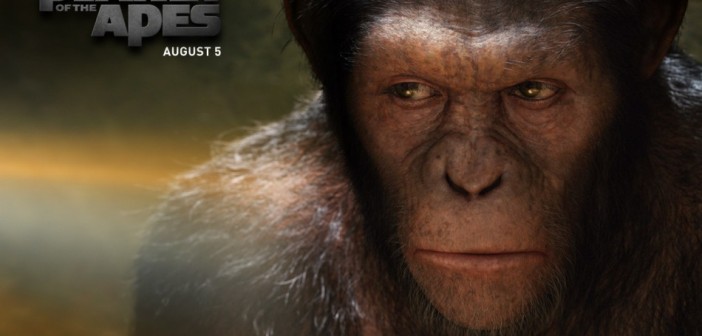After all the theatrical features, multiple TV shows, documentaries, remakes, comics, action figures and more, having all seemingly fizzled out by the early 2000s, it’s odd that 20th Century Fox would try and reboot this franchise with a prequel – of sorts. While the film certainly isn’t necessary, it attempts to fill in the details (as opposed to bridging a gap) on the uprising of an intelligent ape takeover of Earth. To anyone unfamiliar with the major ideas in the Planet of the Apes series, this new chapter will make little sense and seem largely pointless, especially as it ramps up to the need for another film – one that, if made, would probably be far more exciting.
Dr. Will Rodman (James Franco) is on the verge of a revolutionary medical breakthrough at the Gen-Sys lab. His new gene therapy drug ALZ-112 has the potential to cure Alzheimer’s disease, which he desperately wants to produce for the sake of his father (John Lithgow) who suffers from the affliction. Testing on chimpanzees goes awry, and a dozen apes are euthanized to halt research. But Will manages to save a newborn chimp to raise as his own, named Caesar (as in Julius), which matures rapidly thanks to residual experimental chemicals passed on from his mother.
Over time, Caesar continues to advance mentally, doubling his IQ astonishingly rapidly. He even learns basic sign language for communication and wears clothing (vestments he retains through the entire movie that raises plenty of questions that are never addressed). His upbringing still leaves time for romantic proceedings for Will with an oddly well-informed animal doctor, Caroline Aranha (Freida Pinto). As Caesar becomes more aware of the morally corrupt events taking place around him, he lashes out at a neighbor, which lands him in a court-ordered, abusive ape sanctuary. His integration into the new facility is directly equated to human prison, with initiations, gang fights and misuse of power. It’s here that he fully realizes the brutal conditions of human supremacy and conjures a plan to overthrow his captors.
Don’t mess with Mother Nature or the animal kingdom. Rise of the Planet of the Apes appears to be delivering that message, effectively creating a sympathetic hero in the increasingly bitter Caesar. It’s difficult not to pity the monkeys, especially when their leader is bestowed with enough intelligence that reducing him to a pet or property seems inhumane. Ethical questions and responses to animal testing, treatment and housing are all provoked. Toward the conclusion, the film demonstrates how one determined creature can rise above the ranks, organize compatriots, and overcome an enemy with superior intelligence, firepower and technology. But with such a finite number of apes in San Francisco, it still feels unrealistic for the sheer masses of human soldiers to be so nonthreatening. At least the primates possess the surprise factor.
Impressively, the movie ends on a satisfactory note, despite the plot existing solely to build to a known outcome (or another new Apes movie, depending on the box office results). It’s unfortunate that the use of nothing but computer-generated monkeys still can’t fool the human eye, never appearing entirely believable in movement or appearance. Perhaps Hollywood should realize that something about good old-fashioned ape costumes never loses its B-movie appeal.

